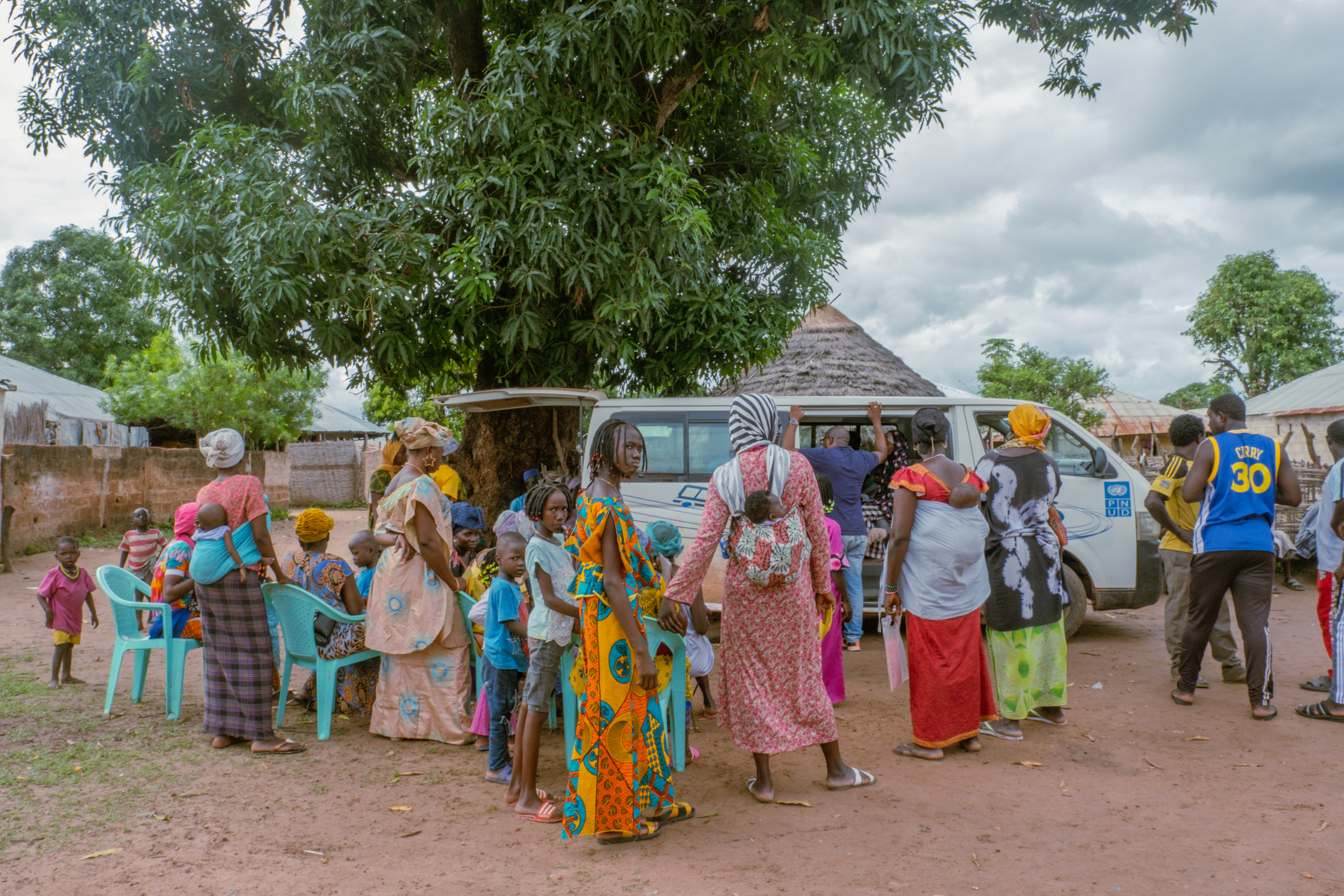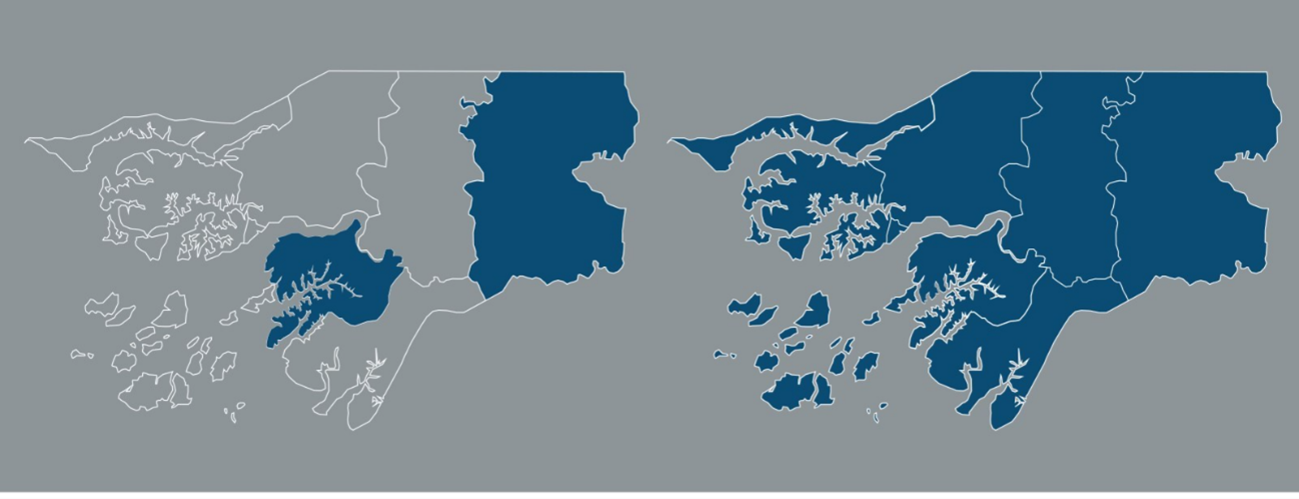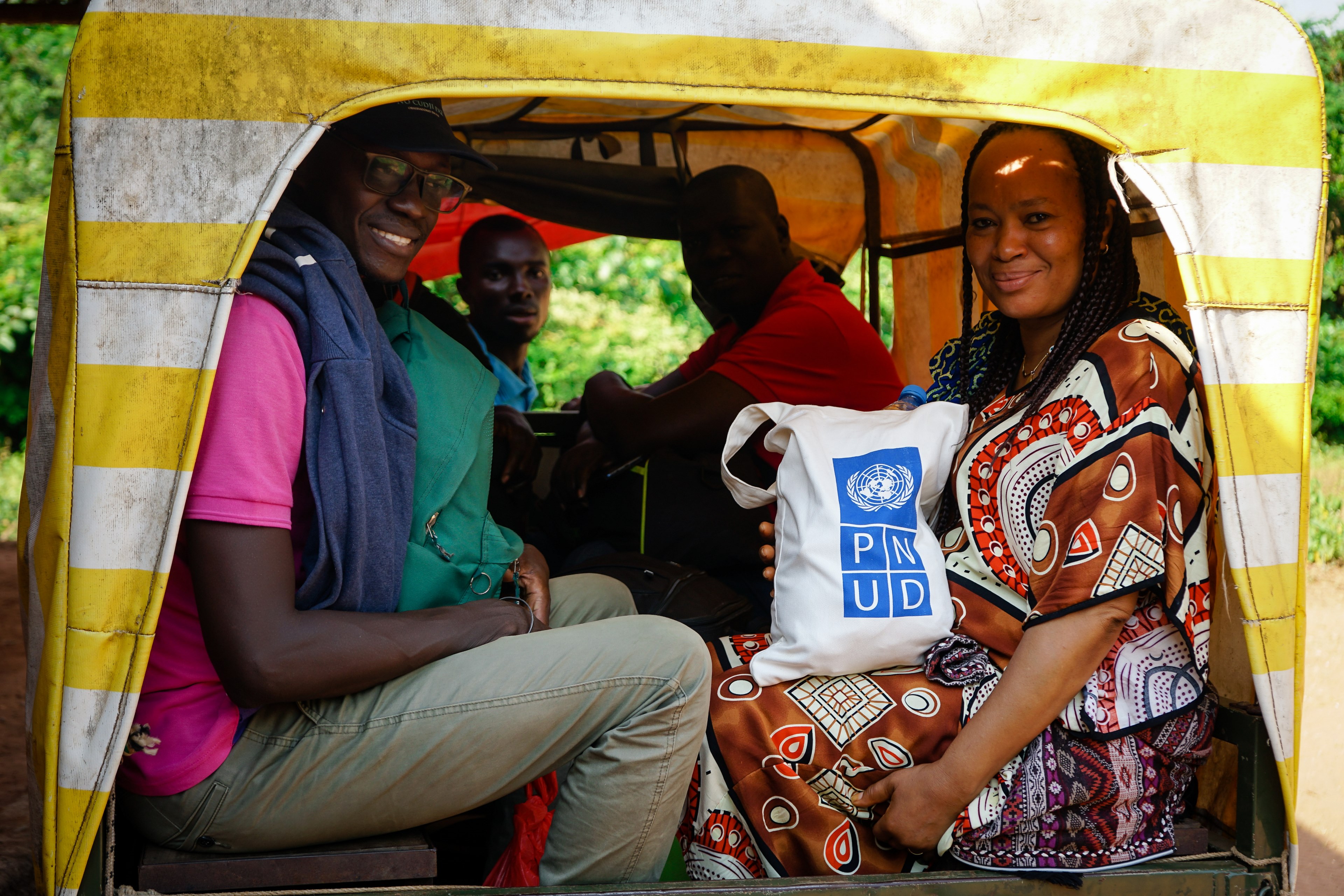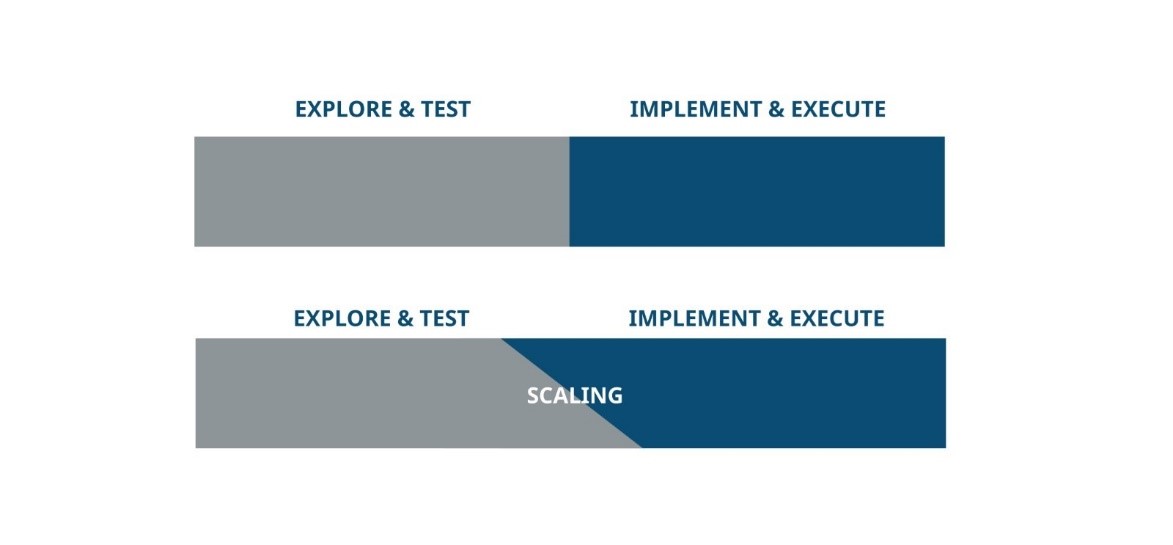From Experimentation to Transformation: Scaling Mobile Justice Across Guinea Bissau
August 25, 2023

Population gathering outside the mobile civil registry in Fulacunda, Guinea Bissau during the first experiment 2021
In the realm of innovation, the journey from experimentation to real-world impact is both exciting and intricate. The Accelerator Lab Guinea Bissau embarked on this journey in 2020, weaving together collaboration and ingenuity. Hand in hand with the Ministry of Justice and the UNDP Governance Cluster, the Lab embarked on a challenge to increase access to public service provision in the country. The result is an array of interventions that have been reshaping the landscape and reaching the farthest corners of the nation.
The Mobile Justice Experiment
The first Mobile Justice experiment carried out in 2021, a minibus decentralizing the services of the Civil Registry and the Center for Access to Justice (CAJ), wasn't just about mobile services; it was about providing access to justice to the population in the most remote and hard-to-reach regions. With a robust multisectoral team comprising the Ministry of Justice and the Center of Access to Justice (CAJ), the experiment was set into motion. Attendances at fixed service points were compared to those at the mobile units. The outcome? Decentralized services through mobile units closing the gap between the marginalized and essential justice services.
Coming to scale
Empowered by the successful results of the first experiment and embraced by the people and government partners, the UNDP Governance Cluster secured additional funding for the Mobile Justice solution. In September 2022, a new chapter began when the Ministry of Justice itself requested a nationwide scaling. The innovation attracted new partners along the way such as the UNDP Gender Specialist and UNICEF and the second iteration of the experiment, embraced digitalization, integrating tablets and information systems softwares to amplify the impact. The test showed that the digital registration services (average of 3 minutes to complete) are quicker when compared to the manual (average of 7 minutes to complete). In conclusion the digital contributes to saving around 43% of time invested in the manual registration.

Map of Guinea Bissau. The Mobile Justice experiment started in two regions and is now being scaled nationwide.
Longstanding partnerships paving way for transformation
The scale-up isn´t a solo feat. A long-standing UNDP Governance Cluster presence within the Ministry of Justice facilitated initial contact. Prior collaborative experiments forged a strong relationship with the Ministry. This collaboration, involving staff and directors at all levels, smoothed the path for adoption. It's proof that partnerships cultivated over time yield fertile ground for transformation. Additionally, the Lab is learning that scaling is an experiment in itself as the team is continuously validating and iterating along the way. Here, the role of the Lab is slowly shifting from leading the experiment to supervising it.

One of the challenges faced during the mission was how to get around in the different regions of the country, including the most isolated places with difficult access such as the Bijagós Arquipelago. A boat was replacing the minibus to travel between the different islands, and while on land, motorbikes were used to bring the team to communities.

Diagram showing the "scaling space" in which the Lab currently finds itself, somewhere inbetween the space of exploring/testing and implementation.
Lessons Learned
Amongst the good lessons learnt, the mission experienced some operational challenges in the field with main constraint being linked to the limited internet access. Another challenge faced was how to get around in the different regions of the country, including the most isolated places with difficult access such as the Bijagós Arquipelago. A boat was replacing the minibus to travel between the different islands, and while on land, motorbikes were used to bring the team to communities. Interested stakeholders must look for ways to work around these obstacles.
With scaling still in progress, early insights from Guinea Bissau reveal valuable lessons:
• Clarity Fuels Adoption: Experiments that are easy to understand and document are more likely to gain adoption.
• Teamwork Drives Success: Multisectoral experimentation teams are key to scaling solutions across regions.
• Relationships Matter: Building enduring relationships with government partners lays the foundation for adoption and scaling.
• Ownership Empowers: Co-designing experiments with partners and stakeholders fosters a sense of ownership and accelerates adoption.
• Openness to Experimentation: Collaborative experiments with government partners cultivate a culture open to experimentation.
Challenges and Next Steps
However, the journey is not without its challenges. Sustaining funding, bringing onboard the right people with an entrepreneurial mindset, and coordinating efforts are ongoing hurdles.
The journey continues, with the Lab continuously advocating for policy change, presenting a pitch deck with lessons learned for partner sensitization and resource mobilization campaigns. Additionally, the Lab supports the design of the next mission which will onboard improved digital components and a mobile court. The vision is clear – to make justice truly mobile, accessible, and integral to the Ministry of Justice's mission.

 Locations
Locations